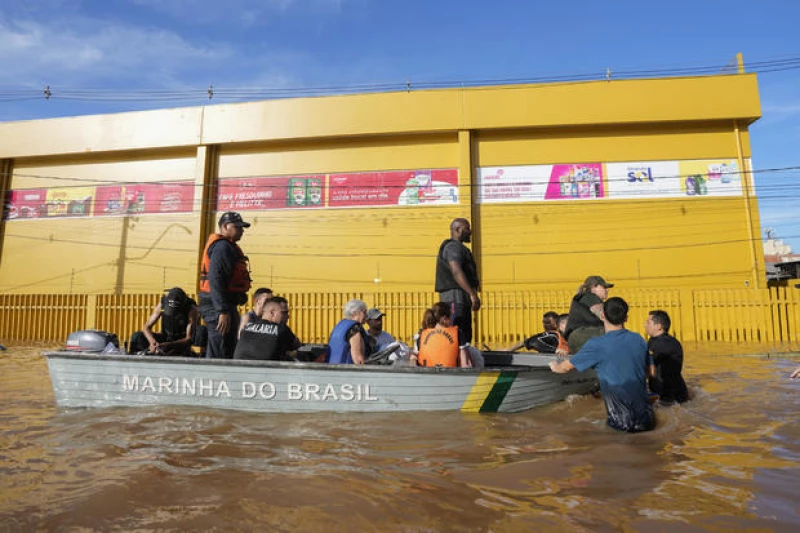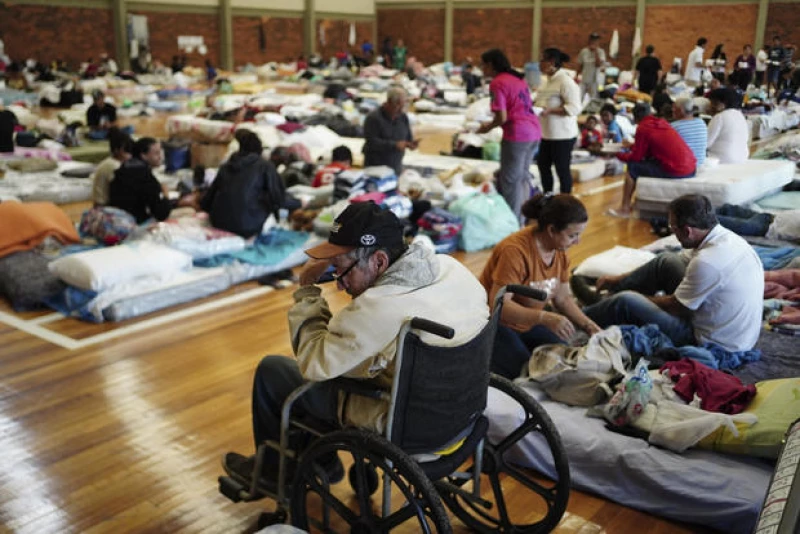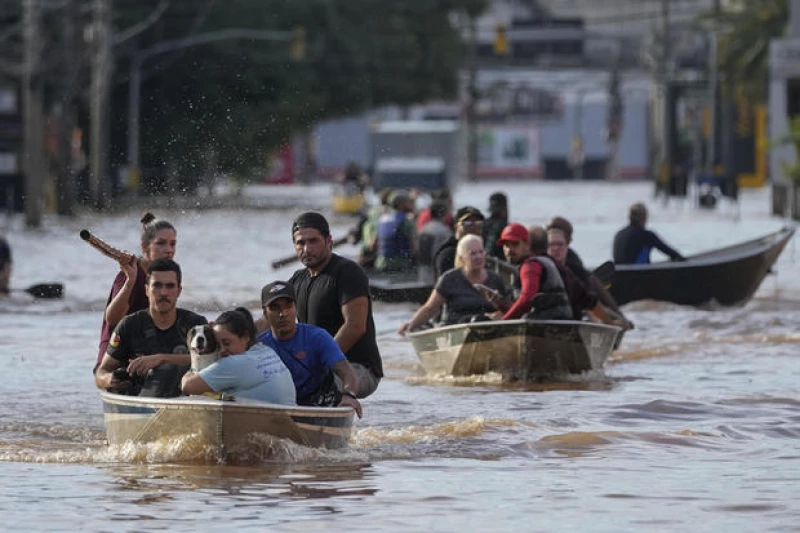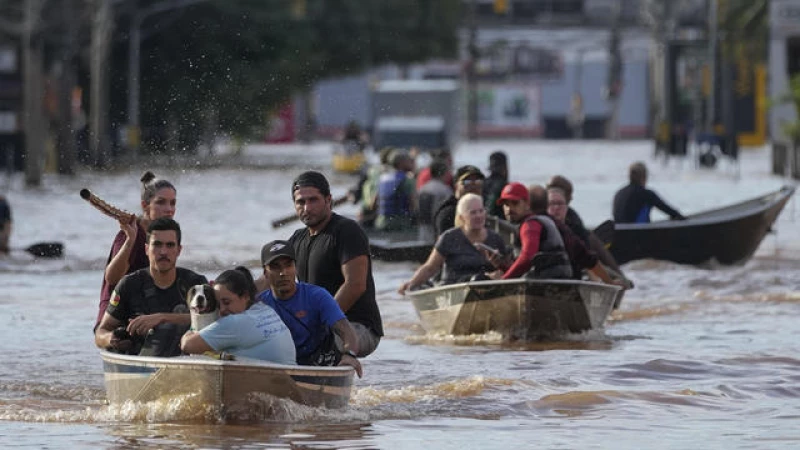The death toll from devastating floods that have ravaged southern Brazil for days reached 100 on Wednesday, authorities said, as the search continued for dozens of people still missing.
Nearly 400 municipalities have been affected by the worst natural calamity ever to hit the state of Rio Grande do Sul, with hundreds of people injured and 160,000 forced from their homes.
Many have no access to drinking water or electricity — or even the means to call for help with telephone and internet services down in many places.
On Tuesday, state governor Eduardo Leite had warned the human toll was likely to rise as "the emergency is continuing to develop" in the state capital of Porto Alegre and other cities and towns. Authorities urged people not to return to affected areas due to possible landslides and health hazards.
"Contaminated water can transmit diseases," civil defense spokeswoman Sabrina Ribas warned on Wednesday.
Some 15,000 soldiers, firefighters, police and volunteers were at work across the state, many in boats, and even jet skis, to rescue those trapped and transport aid.
Devastating Rains and Floods Hit Porto Alegre
The National Confederation of Municipalities reported that nearly 100,000 homes in Porto Alegre, Brazil, have been damaged or destroyed by unprecedented rains and floods, resulting in losses of over $900 million.
Porto Alegre, a city of 1.4 million people, is facing a crisis as the larger metropolitan area grapples with the aftermath of the natural disaster.

The Guaiba River, flowing through Porto Alegre, has reached historic levels, putting five dams at risk of rupturing.
With impassable roads, collapsed bridges, and flooded homes, residents are in urgent need of drinking water. Queues have formed at public taps and wells, while only two water treatment plants out of six are operational.
Helicopters are delivering essential supplies to the most affected communities, and efforts are underway to restore road access. The Brazilian Navy is sending its largest vessel, the "Atlantic," with mobile water treatment stations to assist in the relief efforts.
President Luiz Inacio Lula da Silva has assured that resources will be made available to support Rio Grande do Sul in this time of crisis.
Despite rescue efforts in Gasometro, a popular tourist area in Porto Alegre, the rising water levels continue to pose challenges.

"You can only cross on foot or by boat. There is no other way," 30-year-old resident Luan Pas told AFP next to a street turned into a stagnant, smelly river.
Operations at the port of Porto Alegre have been suspended, and its international airport indefinitely closed.
The Air Force said the military base outside town will receive commercial flights transporting aid and passengers.
In a rare dry spot in Porto Alegre's historic center, dozens of people gathered around a generator rented by a pharmacy to charge their cell phones.
"This is a parallel universe," said one of them, university professor Daniela da Silva, 30.
The Inmet meteorological institute has warned of more storms with heavy rains and winds in the south of the state and downpours over the weekend in the Porto Alegre region.

The World Meteorological Organization in a report Wednesday, said Latin America and the Caribbean had recorded its warmest year on record in 2023 — "a year of record climatic hazards" for the region due to climate change and the El Nino weather phenomenon.
Many towns and cities in Brazil, it said, were hit by "exceptional rainfall" that caused displacement and massive upheavals.
Due to climate change, extreme or rare events "are becoming more frequent and more extreme," Jose Marengo, research coordinator at Brazil's National Center for Natural Disaster Monitoring (Cemaden) told AFP.
MetSul, the weather agency, has reported that the flooding in Porto Alegre has completely altered the landscape of the metropolitan region.







